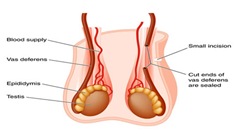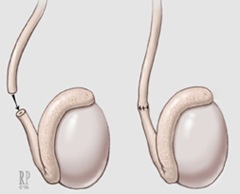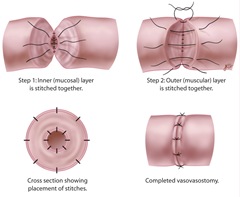Embracing New Paths to Parenthood: Assisted Reproductive Technologies (ART)
For individuals and couples facing challenges with fertility or considering alternative paths to parenthood, Assisted Reproductive Technologies (ART) offer hope and the opportunity to fulfill their dreams of having a child. In this blog, we will explore the different ART options available, highlighting their benefits, considerations, and how they can help individuals and couples achieve their goal of becoming parents. Dr. Yaniv Larish, an experienced urologist specializing in fertility and reproductive health, can provide expert guidance and support throughout the journey of exploring ART options.

Top Assisted Reproductive Technologies
In Vitro Fertilization (IVF)
In Vitro Fertilization (IVF) is one of the most well-known and widely used ART techniques. It involves the retrieval of eggs from the female partner, fertilizing them with sperm in a laboratory setting, and transferring the resulting embryos into the uterus. IVF offers high success rates and can be a viable option for individuals or couples with various fertility challenges, including male factor infertility or tubal issues in the female partner.
Intracytoplasmic Sperm Injection (ICSI)
Intracytoplasmic Sperm Injection (ICSI) is a specialized form of IVF that involves the injection of a single sperm directly into an egg. ICSI is particularly beneficial in cases of male infertility, such as low sperm count, poor sperm motility, or abnormal sperm morphology. This technique increases the chances of fertilization and can be combined with other ART methods to maximize success.
Donor Gametes (Egg or Sperm Donation)
Donor gametes, including egg or sperm donation, provide an alternative option for individuals or couples who are unable to use their own gametes to conceive. Donor eggs or sperm can be used in conjunction with IVF or ICSI, allowing individuals or couples to experience pregnancy and parenthood. The use of donor gametes is a deeply personal decision, and your trusted doctor should provide guidance, support, and access to reputable donor programs.
Gestational Surrogacy
Gestational surrogacy involves a surrogate mother carrying and delivering a baby for individuals or couples who are unable to carry a pregnancy themselves. In this process, embryos created through IVF or other ART methods are transferred to the surrogate’s uterus. Gestational surrogacy offers a unique opportunity for individuals or couples to have a biological child while entrusting the pregnancy and delivery to a surrogate who will provide a safe and nurturing environment for the baby.
Psychological and Emotional Support
Exploring alternative options for parenthood can be an emotional journey. It is essential to seek psychological support, counseling, or join support groups to navigate the challenges and emotions associated with ART. It can help to have a doctor that understands the importance of emotional well-being throughout the process and can provide recommendations and resources to support individuals and couples on this path.
Conclusion: Embracing the Possibilities of Assisted Reproductive Technologies
Assisted Reproductive Technologies (ART) offer a range of alternative options for individuals and couples striving to become parents. Whether through IVF, ICSI, donor gametes, or gestational surrogacy, ART provides opportunities to fulfill the dream of parenthood. With the guidance and support of Dr. Yaniv Larish, you can explore these options, make informed decisions, and embark on the journey towards building your family.
To learn more about alternative options for parenthood through Assisted Reproductive Technologies and discuss your specific circumstances, schedule a consultation with Dr. Yaniv Larish.
Yaniv Larish, MD
4 East 76th Street
New York, NY 10021
(646) 862-5500
Dr. Yaniv Larish’s expertise in fertility and reproductive health, coupled with his compassionate approach, will ensure that you receive the guidance, support, and personalized care necessary to explore and pursue the alternative options for parenthood through Assisted Reproductive Technologies (ART).



